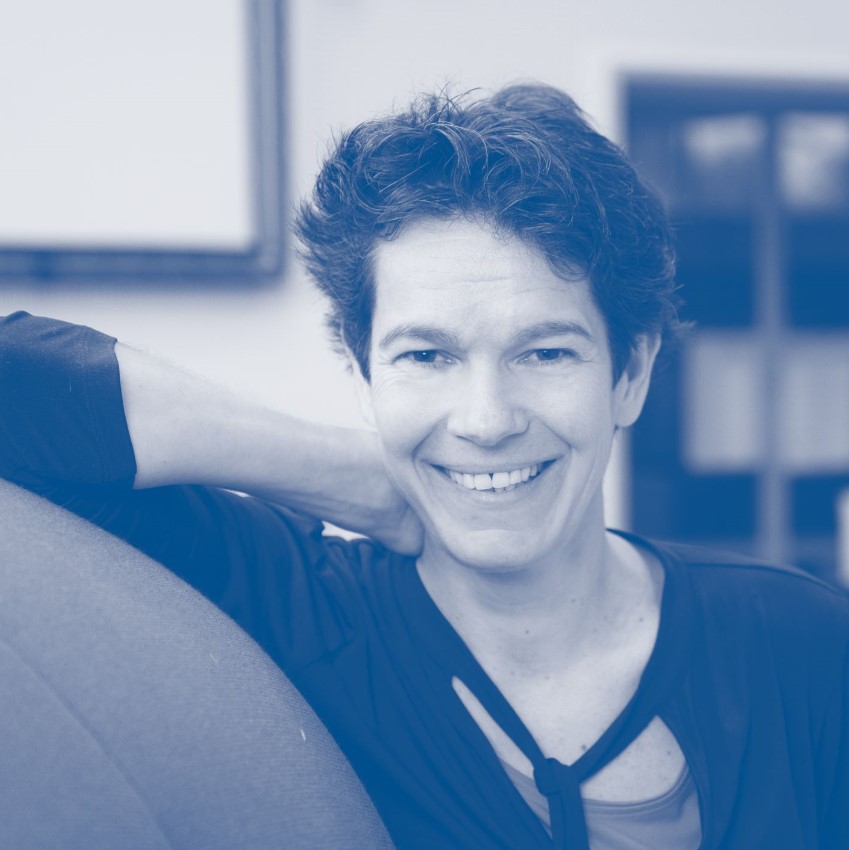8 Jul 2024
Neelke Doorn joins the LNVH Board
As of today, July 8, Prof. Dr. Mr. Ir. Neelke Doorn joins the LNVH Board. Neelke Doorn is full professor Ethics of Water Engineering at TU Delft. To introduce her to the network, we asked her a few questions:You have completed three master's degrees at three universities: Civil Engineering, Philosophy, and Law. Can you tell us something about your academic journey? Are you driven by an insatiable hunger for knowledge?
As a child, I was good at math and physics, and I was somehow fascinated by water. I wanted to help the world combat floods. This desire emerged very early in my life, and I knew from a young age that I wanted to study civil engineering. I'm not sure where this drive came from; it’s not a typical dream for a child. But if you're good at the 'beta' sciences, you're expected and encouraged to pursue something in that field – this is much less the case if you are very good at languages – and I genuinely enjoyed it.
When I started studying civil engineering, I quickly learned that technology alone isn't the answer. That's why, after graduation and in my first job, I decided to pursue a degree in philosophy in the evenings and on weekends.
After defending my PhD thesis, I was offered a position at TU Delft. I got the opportunity to put water ethics as a research field on the agenda. This led to my interest in law. Given that my external network involved governmental bodies like the water boards, the Ministry for Infrastructure and Water Management, and the EU, I wanted to speak the legal language. So, I decided to study law at the Open University, parallel to my position as a tenure tracker in Delft. Of course, it wasn’t necessary to get an entire law degree for that, but I found it very enjoyable, so in the end, I completed both the bachelor's and the master's. In addition to developing a comprehensive understanding of law, particularly water and environmental law, it helped me develop my teaching skills. Being a student myself allowed me to view my own teaching from the perspective of a student.
You are the director of Education of the Faculty of Technology, Policy and Management. Do you see obstacles for the advancement of female students and academic staff and did you encounter obstacles yourself?
I have had an atypical career because I worked at Deltares for 10 years before pursuing my PhD. I was very fortunate that my faculty appreciated the work experience I had gained before the start of my academic career. So, once I had defended my PhD thesis, I advanced quite quickly through the different academic positions. I learned that people in leadership positions really can make a difference here.
TU Delft is a university where the majority of students and staff are male. This doesn’t necessarily mean that students or staff need to exhibit ‘masculine’ behavior to advance, but certain character traits are clearly an advantage, such as being extroverted or willing to take risks. I don’t like calling these ‘masculine’ or ‘feminine’ because those categories are contested anyway.
TU Delft is proud of its can-do mentality ("We don't see problems, we see solutions"), which can be energizing, but sometimes it is also good to take a step back and be less action-oriented. When I look at which women make career steps and which women experience obstacles, I think it is not necessarily about copying certain behaviors but a sum of micro-obstacles. One doesn’t need to tick all the boxes, but the more you do, the easier your life. An introverted woman being the first in her family to go to university may quickly get overlooked.
Will you advocate for these individuals from your role as an LNVH board member?
I have carefully considered my role as an LNVH board member. With so many areas in which the world can be improved, it can be challenging to determine where to focus your efforts. Based on my expertise, something related to sustainability or climate change would also have been a natural fit. However, as a full professor in a leadership position, I feel that I can make a significant impact as an LNVH board member. I am deeply committed to issues surrounding intersectionality. I see that first-generation academics face significant challenges. Here in Delft, there is also a strong fraternity culture that tends to create old boys' networks. Social safety is currently a hot topic as well. I am eager to contribute to promoting equal opportunities and social safety for everyone.
Would you describe yourself more as an activist or a diplomat?
I think that people whom I supervise see me as a more patient and calm person than those above me in the organizational chart. I am not necessarily an activist or a diplomat, I can be both. I believe one is allowed to raise ones voice more to people higher up in the hierarchy. I will certainly do that in my role as an LNVH board member if necessary.
Which themes do you think the LNVH should definitely work on in the next couple of years, and why?
Following on from the previous points, I believe that minorities need to unite. In some occasions you are in a comfortable majority position, and you should use that advantage to advocate for minorities. In other occasions, you may be part of a minority yourself. For me, speaking out for other minorities is obvious because, besides being a woman, I am also lesbian. I cannot justify to myself not paying attention to, for example, disabled people, while at the same time expecting a rainbow flag to be shown. If you are privileged, you should not use it only to your own advantage.
 Prof. Dr. Mr. Ir. Neelke Doorn
Prof. Dr. Mr. Ir. Neelke Doorn
More information about the current LNVH board members can be found here.

